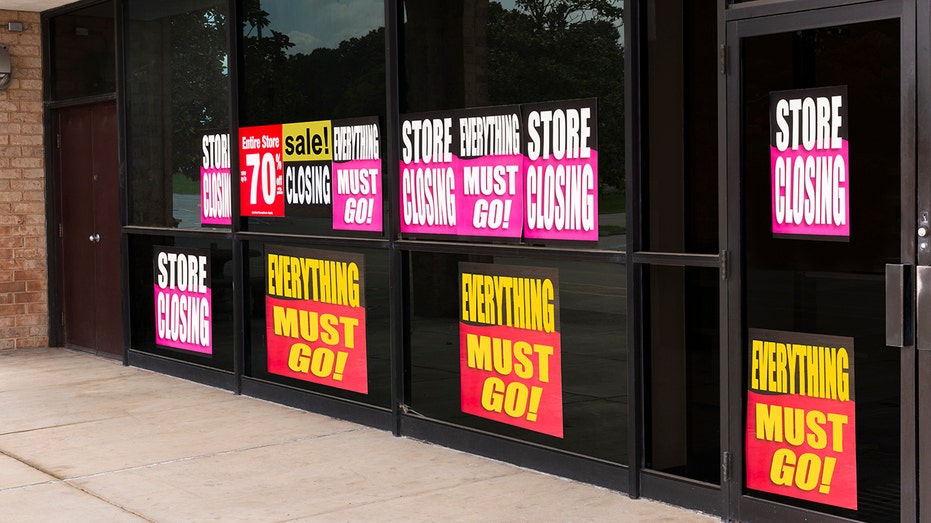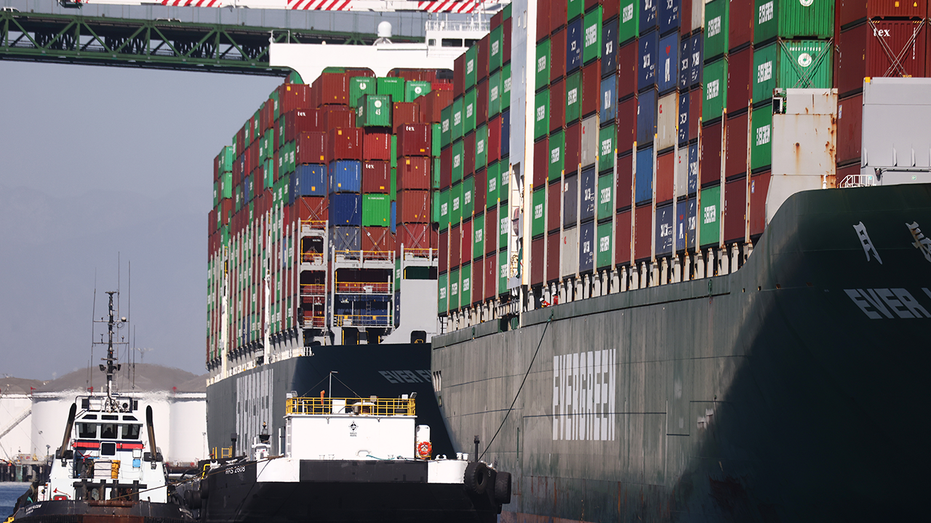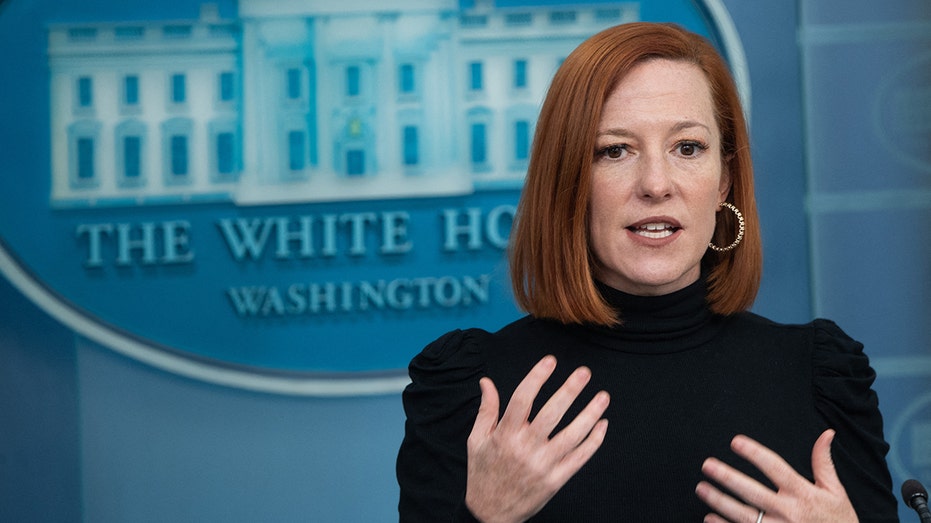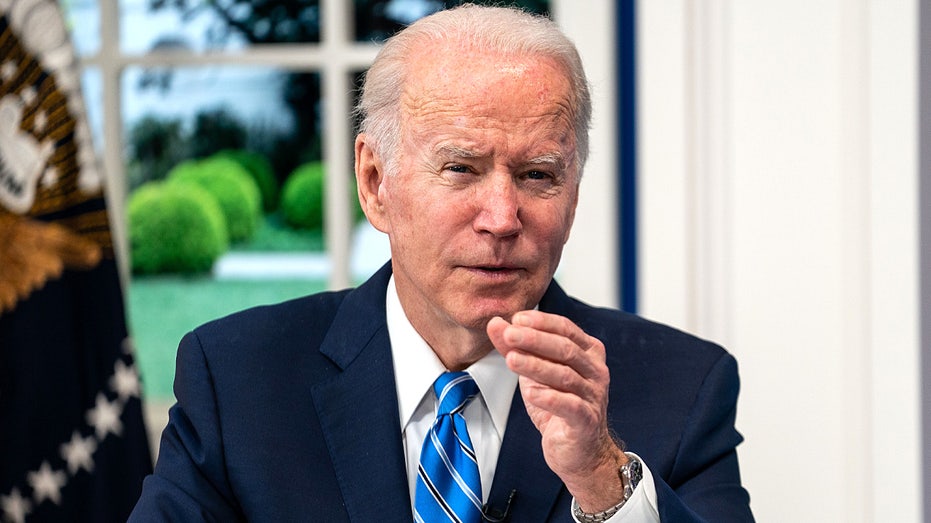Biden's inflation blame game leans on shifting scapegoats
Biden has pointed to at least three different sources for the same ongoing inflation spike
The Fed let inflation happen, may cause ‘recession’: Expert
Richard Bernstein Advisors Deputy CIO Dan Suzuki provides insight into how inflation is impacting the markets.
President Biden has ensured the U.S. public he is keenly aware of the ongoing economic crisis hitting families and low-income households, but who and what he thinks is primarily responsible for soaring inflation has changed over time.
Biden has recently made a concerted effort to blame Russia's ongoing invasion of Ukraine as the main source of economic turmoil in the U.S., pointing to disrupted markets. However, Russia is only the latest in a series of causes for the inflation and soaring gas prices, according to Biden.
From pandemic restrictions to supply chain disruptions and the Russian invasion of Ukraine, the Biden administration has been vocal about the obstacles it says is keeping it from getting the U.S. economy back on track.
BIDEN STIMULUS PLAN FUELING INFLATION SURGE, SAN FRANCISCO FED ANALYSIS SHOWS
As Biden entered office in 2021, the coronavirus pandemic remained in full swing, many businesses still not fully open.

A store plastered with going out of business signs due to the pandemic. (iStock / iStock)
Efforts to jump-start economies, including through massive amounts of federal spending, have had unintended consequences, economists say. As consumers felt more emboldened to spend the money they had received through government assistance or low-interest borrowing, and vaccine rollouts encouraged people to return to restaurants, bars and shops, the surge in demand tested the capacity of suppliers to keep pace.
Rising inflation led to price increases for food, gas and other products, pushing many people to choose between digging deeper into their pockets or tightening their belts.
SEN. JOHNSON: DEMOCRATS ARE ‘LIVING IN A FANTASY WORLD’ OVER RISING INFLATION
Prices continued rising, this time, in large part, because container ships were reportedly stranded at ports and because unloaded goods were waiting for transport trucks, according to the Biden administration. This supply chain crisis led to mass shortages and delays that caused another, longer-than-expected bout of inflation.

Cargo containers sit stacked on container ships at the Port of Los Angeles, the nation’s busiest container port, Oct. 15, 2021, in San Pedro, California. (Getty Images / Getty Images)
Ronald Klain, the White House chief of staff, was criticized online in October after he retweeted a post from a Harvard professor that summed up top economic issues as "high-class problems."
NEW YORK TIMES COLUMNIST SAYS HE HAS ‘HIGH TOLERANCE’ FOR INFLATION IN ‘WHITE-HOT ECONOMY’
At a November news conference, Biden answered a question from a reporter on criticism he has faced from Rep. Abigail Spanberger, D-Va., who said, "Nobody elected him to be FDR, they elected him to be normal and stop the chaos."
"If we were all going out and having lunch together, and I said, 'Let’s ask whoever's in the next table, no matter what restaurant we’re in, have them explain the supply chain to us.' Do you think they’d understand what we’re talking about?" Biden asked.
By the end of the year, the White House was running a victory lap, touting that Biden had "saved Christmas" through his economic intervention and government spending on social programs.
The Biden administration released a "fact sheet" in December ahead of a meeting that touted what it called the strongest economic growth of any president in his first year in a half century, outlining the "aggressive action to lower the price of goods and gasoline for Americans."
"Since Day 1, President Biden has been laser-focused on reopening the economy and has taken aggressive action to lower the price of goods and gasoline for Americans," the fact sheet stated. "The president’s Supply Chain Disruptions Task Force has made significant progress to alleviate bottlenecks that are rooted in the global pandemic."

White House press secretary Jennifer Psaki speaks during the daily briefing in the Brady Briefing Room of the White House Jan. 21, 2022. (Saul Loeb/AFP via Getty Images / Getty Images)
The sheet claimed the administration is "moving record amounts of goods to keep shelves stocked" in an attempt to meet "record demand."
CLICK HERE TO READ MORE ON FOX BUSINESS
As the U.S. economy headed into 2022, with the majority of pandemic-related supply chain issues ironing out, inflation and gas prices continued soaring.
Following the invasion of Ukraine by Russian forces, the administration began to pivot away from obstructions to international trade and began to point fingers at Russian President Vladimir Putin.
President Biden was widely criticized on social media this week after telling a reporter that he "can’t do much right now" about soaring gas prices in the United States while also pinning the blame on Russia.
"It’s going to go up," Biden told a reporter when asked about gas prices on Tuesday. "Can’t do much right now. Russia is responsible."
Biden’s comment came as gas prices in the United States hit a record high.
At a press conference Thursday, Psaki again blamed the Russian invasion for the skyrocketing gas prices and economic inflation in the U.S but said experts expect the crisis to be "temporary."

President Biden and the White House COVID-19 Response Team participate in a virtual call with the National Governors Association from the South Court Auditorium of the Eisenhower Executive Office Building of the White House Complex Dec. 27, 2021. (Kent Nishimura / Los Angeles Times via Getty Images / Getty Images)
"We rely on the assessment of the Federal Reserve and outside economic analysts who give an assessment of how long it will last," Psaki said. "The expectations and their assessment at this point is that it will moderate at the end of the year. There is also no question that when a foreign dictator invades a foreign country, and when that foreign dictator is the head of a country that is the third-largest supplier of oil in the world, that is going to have an impact. And it is."
Fox News's Kyle Morris, Andrew Mark Miller, Audrey Conklin and the Associated Press contributed to this report.




















